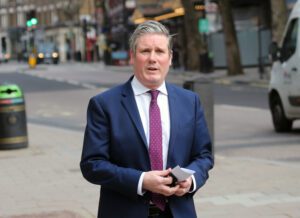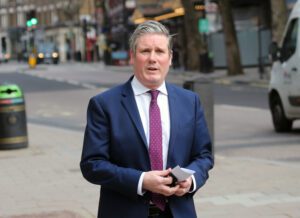
Prime Minister Sir Keir Starmer has announced a relaxation of key green policies in a bid to shield the UK automotive industry from the impact of President Donald Trump’s 25% tariffs on car exports to the United States.
Delivering his first formal response to the tariffs during a visit to the West Midlands, Starmer will say that British industry must accept that “the world has fundamentally changed” and adapt accordingly. He warned that the tariffs, part of Trump’s wider “Liberation Day” trade strategy, were “not a phase” and would require urgent long-term action.
One of the most significant changes is a relaxation of the UK’s Zero Emissions Vehicle (ZEV) mandate. The fine for non-compliance will be reduced from £15,000 to £12,000 per car, easing the burden on manufacturers already grappling with export barriers and inflationary pressures.
Under the current ZEV framework, 28% of all new cars sold in the UK this year must be electric, rising to 80% by 2030 and 100% by 2035. But Starmer confirmed that hybrid vehicles — including non-plug-in models — will be permitted until 2035, pushing back Labour’s previous commitment to end the sale of all new combustion engine vehicles by 2030.
Manufacturers will also be allowed more flexibility in how they meet annual EV targets. Instead of incurring fines or buying credits from fully electric competitors like Tesla or China’s BYD, they will now be able to “bank” and “borrow” EV sales across multiple years until 2030 to meet compliance requirements.
“No British-based manufacturers should have to pay a fine — or pay foreign firms for EV credits,” Starmer said.
The changes come amid increasing concern from the UK car industry. Jaguar Land Rover (JLR) announced over over the weekend that they had suspended vehicle exports to the US, citing the severe impact of Trump’s 25% auto tariff. With over 9,000 staff employed at its Solihull plant alone, the implications for the regional and national economy are considerable.
To encourage EV adoption and reassure consumers, Starmer confirmed £2.3 billion in tax incentives and investment in charging infrastructure.
“One public charging point pops up every half an hour,” he wrote in an op-ed, aiming to counter concerns about the higher upfront cost of electric vehicles.
According to the Society of Motor Manufacturers and Traders (SMMT), EV sales in March rose by 43% year-on-year, totalling 69,313 new electric cars sold. But the charging industry has warned that policy instability could put the brakes on further progress.
Vicky Read, CEO of ChargeUK, welcomed confirmation of the 2030 petrol and diesel ban but criticised what she described as “back door amendments” to the ZEV mandate.
“The ZEV mandate has been weakened, creating uncertainty for investment in EV charging infrastructure,” she said, adding;“Without supportive measures, we risk confining the UK to the slow lane.”
Read reiterated the sector’s pledge to invest £6 billion in UK charging infrastructure by 2030, but warned that confidence depended on regulatory clarity.
Meanwhile, Chancellor Rachel Reeves is expected to intensify international trade talks this week, including discussions with Indian ministers on a long-anticipated trade deal. A new agreement with Australia is also in the pipeline.
Tensions between London and Washington remain unresolved. While Starmer has not spoken to President Trump since the tariffs were announced, the Prime Minister dismissed the US leader’s claim that the UK was “very happy” with the baseline 10% tariff.
“Nobody is pretending that tariffs are good news,” Starmer said bluntly.
On Sunday, Starmer held calls with Canadian Prime Minister Mark Carney, European Commission President Ursula von der Leyen, and German leaders Olaf Scholz and Friedrich Merz, stressing the need for coordinated diplomacy to stabilise global trade.
Despite early signs of internal division in Washington — with Commerce Secretary Howard Lutnick defending even the tariffs on uninhabited islands, and Elon Musk, now part of Trump’s government efficiency department, calling for zero tariffs — Starmer has made clear that his trade strategy will be governed by national interest, not political spectacle.
“I will only sign deals, with the US or anyone else, that are in our national interests,” he said.
As the dust settles on the latest volley in the global trade war, the Prime Minister’s recalibrated green strategy seeks to balance environmental ambition with industrial pragmatism, ensuring that Britain’s transition to electric vehicles is both commercially viable and globally competitive.
Read more:
Starmer eases green rules to shield UK carmakers from Trump tariffs

